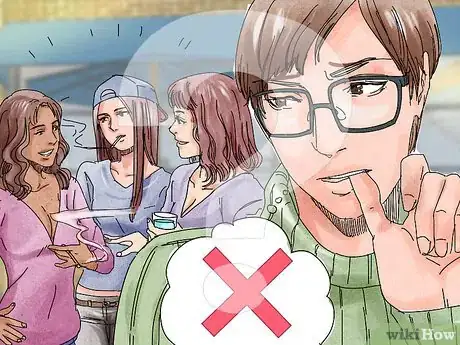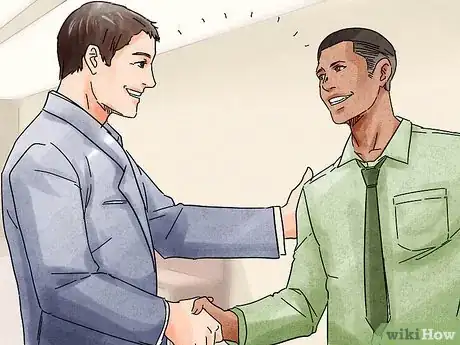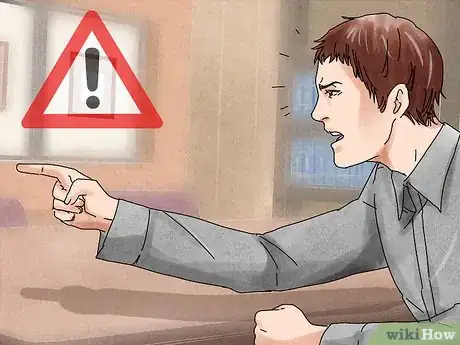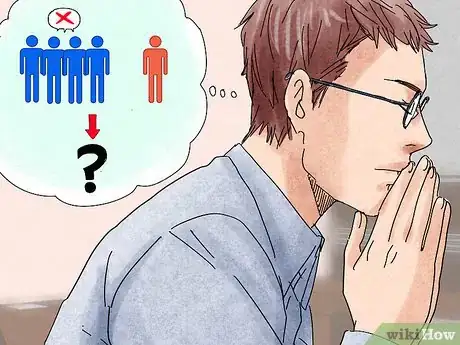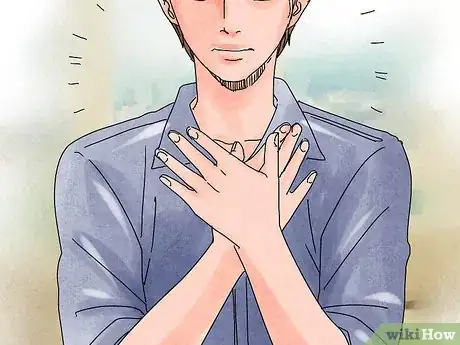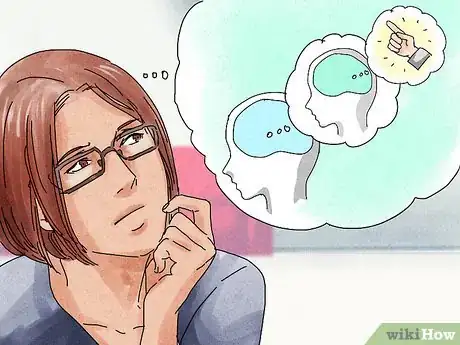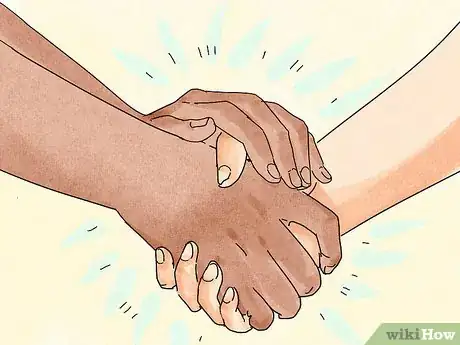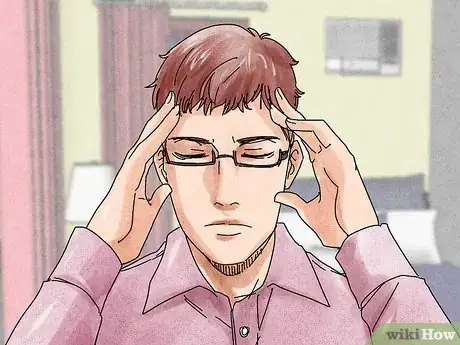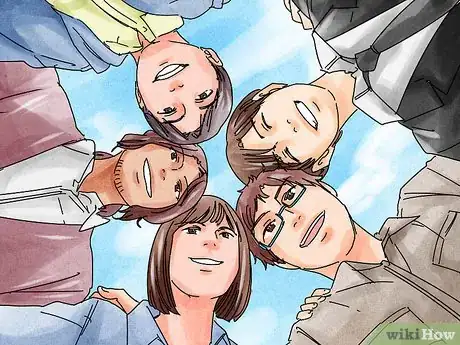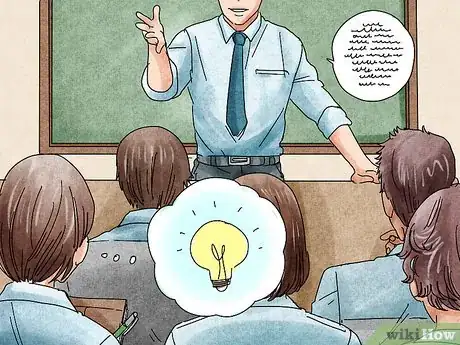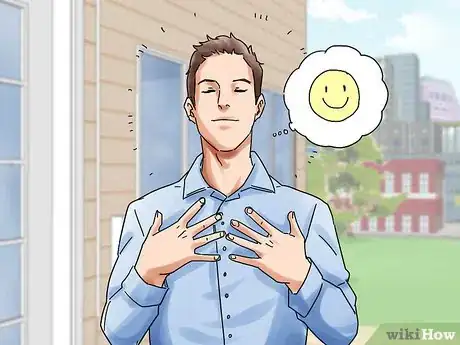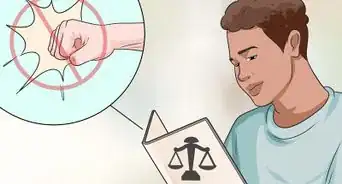This article was co-authored by Trudi Griffin, LPC, MS. Trudi Griffin is a Licensed Professional Counselor in Wisconsin specializing in Addictions and Mental Health. She provides therapy to people who struggle with addictions, mental health, and trauma in community health settings and private practice. She received her MS in Clinical Mental Health Counseling from Marquette University in 2011.
This article has been viewed 78,683 times.
Many people know prejudice is wrong, but end up trapped in bigoted thought patterns. Wanting to change is good, as it's important to learn to value people from all walks of life. To start, work on altering your perspective. Learn about the roots of prejudiced thoughts and how you can become more aware of your preconceived notions about others. From there, try to change how you view others. Work on reminding yourself people are more alike than different. Lastly, take steps to expand your worldview. Travel to a far away place or get involved in your community.
Steps
Confronting Your Prejudice
-
1Learn why prejudice exists. This can help you understand the roots of your thinking. Studies indicate people are born with an innate tendency to be drawn to those similar to them and judge those who are different. One study showed a 3-month old baby preferred people who ate the same cereal she did, and distanced herself from those who did not.[1]
- Say you are religious and have been married for 20 years. You meet an unmarried couple in an open relationship. As this is different than your lifestyle and preferences, you may have a knee-jerk response that this is "wrong."
- This is not that different than the baby's reaction to cereal. These people have different values and preferences than you. While this lifestyle may not work for you, does that mean it's wrong? Categorizing it in a negative fashion could be a biological response.
-
2Reach out to people who are different. Once you understand the irrational nature of prejudiced thoughts, actively challenge your assumptions. When you find yourself judging another person, stop and ask yourself, "Where is this thought coming from?" and "Is this thought fair?" Then, you can make an effort to get to know the person you're judging.[2]
- When meeting someone whose behavior or appearance does not fit with your preconceived notions of "normal," be hyperaware of how you feel. Are you making any assumptions? Are these assumptions rational? Are they fair?
- Instead of passing judgement, reach out. If there's a co-worker in your office who has a different religion than you, get to know her. The more you learn about people from different countries, cultures, races, and religions, the more you will see your prejudice is not rational. With practice, you can actually abandon some prejudicial responses adopted early in life.
Advertisement -
3Recognize when you're judging someone. Even if you work hard to be aware, you will still judge people. Unfortunately, most people have days where they pass judgements, whether they mean to or not. The best way to deal with this is to work actively on being aware.[3]
- Remind yourself of what you do not know. People have a natural tendency to want a full picture, and we fill in the gaps with people we do not know. Often, the information we use to fill in these gaps comes from stereotypes based on things like race, class, religion, and so on.
- For example, say you see someone in tattered clothing getting on the subway at night. You may assume he is homeless, and will therefore bother you. Stop. This man may not be homeless, for one, and if he is, he may not be asking for money. Take a deep breath and think, "I do not know this person. I cannot predict his behavior."
-
4Figure out the roots of your prejudice. Do you pass judgement on a particular group of people? If so, why? If you can figure out the roots of prejudiced thoughts, this can help you see how they are irrational. For example, say you believe all members of the opposite sex are irrational, controlling, and manipulative. Where does this come from? Maybe you had a difficult relationship with your parent of the opposite sex. Maybe you've dated people of the opposite sex who have been difficult. [4]
- When confronted with this, you may think, "Well, yes, but most men/women I meet tend to be difficult." Is this really true though? There's something called a confirmation bias. When we have deep-seated beliefs about a group of people, we see those beliefs reflected in innocent actions. Your co-worker Jamie offers to help you on a project, and you think, "Of course, he/she just has to be in control." Is this really true or are you projecting your own prejudice? Maybe Jamie is just trying to help.
- Look for any past experiences you have that are affecting how you judge a large group of people. Try to be aware when your past experiences are influencing your current opinions.
-
5Accept your true self does not have to be prejudiced. We all want to believe we have a "true self" deep down that completely reflects who we are as a person. The truth about what constitutes you is vastly more complicated. Just because you have the capacity for prejudiced beliefs does not mean you are doomed to prejudiced thought patterns.[5]
- You may have some knee-jerk prejudices. These may be innate, or may have been learned over time. While this is unfortunate, should you really define yourself through your impulses alone? Our actions and choices make up a great deal of who we are as well.
- Your "true self" is a combination of natural tendencies, experiences you have had, and the choices you have made. If you're actively working against prejudiced thoughts each day, this speaks more to your true self than knee-jerk reactions. Contrary to popular belief, people do have control over their true selves.
Changing How You View Others
-
1Think about how your view of yourself affects your view of others. Oftentimes, people who judge others have strict standards for their own conduct. If you judge someone harshly in a situation, you may have judged yourself just as harshly in the same scenario. Instead of leaping to judgement, take this as an opportunity to reflect on yourself.[6]
- For example, if you have ever been critical of your weight, then you might be able to empathize with someone who seems to be struggling with his or her weight because you have experienced the same thing.
- This can also combat prejudiced thoughts, as it's a reminder we are all quite similar. If you have lingering prejudice, you may judge a certain group of people more harshly for mistakes. Remind yourself that you, and people just like you, often make the same errors.
-
2Consider another person's perspective before judging. Everyone around you has a unique history and personality that affects their behavior. Before leaping to judgment over a person's missteps, consider that history.[7]
- For example, say you see a homeless person on the train. You may find yourself engaging in prejudiced thoughts about the homeless or those living in poverty. You may think, "How irresponsible. I would never let that become my life."
- Stop and try to put yourself in this person's shoes. Many homeless people are mentally ill, and come from underprivileged backgrounds where their mental illness was never adequately treated. Is this person's current situation really his choice? He may have ended up here due to circumstances beyond his control.
-
3Look for basic goodness in everyone. Cynicism can breed judgmental tendencies. If you tend to believe the worst in everyone, you're more likely to judge someone's behavior. Try adopting a more hopeful outlook. It takes practice, but try to look for the good in people before looking for the bad.[8]
- Pay attention to the small, kind things people do. Someone could, for example, compliment your shirt while you're at the office.
- Look for kindness everywhere. People watch during your day-to-day life. Maybe the cashier at the grocery store gave someone a discount when their card was rejected. Maybe a young woman's bus card was empty, and a fellow passenger paid for her fare.
-
4Remind yourself of the reasons behind prejudice. Again, keep the reasons for prejudice on your mind at all times. An active awareness of the roots of prejudice is necessary when interacting with others.[9]
- We categorize people as part of "in-group" and "out-group" sets. Your in group is comprised of people like you. This is where you feel you belong, and you see people inside your group as all unique. Conversely, "outgroups" comprise any group different than you. People tend to lump those in "outgroups" into the same basic categories.
- You do this all the time, without realizing it. As you go through your daily interactions, be aware of your thoughts when you encounter someone from an "outgroup." If you find yourself making assumptions, remember this is a cognitive tendency that is part of ensuring our physical safety, but this knee-jerk reaction may not reflect reality.
-
5See people as individuals and not groups. It's very common for people to judge a whole group of people by the actions of one individual. Every group of people has good people and bad people. Try to judge everyone you meet as an individual, and do not make assumptions about their behavior based on a single person's actions.[10]
- These judgements can come from personal experience. For example, every woman you've ever dated has been manipulative. You go on a date with someone, and you find yourself thinking, "I bet she's going to manipulate me." This is not the case. You cannot judge all women based on the actions of a few women you've dated.
- Keep in mind that we tend to judge people based on our childhood interactions with our parents, and you may even seek out people who are like your parents in some way. To overcome this tendency, try making a list of the ideal qualities you are looking for in a mate. Then, use the list to help you find someone who has some or all of those qualities.
- These kinds prejudicial thoughts can also be influenced by current events. For example, you see a Middle Eastern person on your plane and feel nervous. You think, "I hope he's not planning anything." Not all Middle Eastern people are associated with terrorist groups. Seeing a lot on the news about terrorism in the Middle East does not give you the right to judge all Middle Eastern people.
Expanding Your Worldview
-
1Travel to a far away place. If you want to expand your mind, travel is a great way to do so. If it's in your budget, plan a trip to a faraway place that contains many people of different cultural backgrounds.[11]
- When you are only exposed to a single culture, you begin to see your culture as the only appropriate way to live. This can make prejudiced thoughts harder to break. Traveling to a different place can help expose you to alternative ways of thinking.
- If you travel to an area with a vastly different culture, you will begin to get a sense of how irrational the term "normal" really is. What is perceived as normal in, say, India will be much different than what is perceived as normal in the United States.
-
2Get involved in work that benefits humanity. Studies indicate when we're all working towards a common goal, prejudice tends to fall aside. The environment is something everyone has an investment in saving. Try working towards protecting the planet's natural resources. You can also look into work with organizations aimed at ending poverty, hunger, or other issues that affect many.[12]
- See if you can join a local grassroots organization dedicated to protecting the environment. Donate some of your time to working for a cause.
- Look for opportunities in your area to help underprivileged communities. See if you can volunteer on a can drive or to deliver meals to underprivileged families.
-
3Enroll in a course on prejudice. The more you understand prejudice, the more you can recognize it in yourself. A course on prejudice will help you learn about your own unconscious biases, and teach you how to better address such thoughts. Studies indicate prejudiced thoughts tend to drop after taking a course on prejudice.[13]
- If you are currently enrolled in college, consider taking a class on prejudice offered by your school.
- If you are not a student, look into enrolling in an online course. You also may be able to find free course materials online from some universities.
-
4Adopt a lighthearted outlook. Some studies indicate mood can actually affect prejudice. One study showed prejudiced thoughts lessened after participants watched a happy video clip. Another study showed that, when people smiled while looking at photos of people of different races, they were less judgmental. Work on being a happier person and some of your prejudices may fall away.[14]
- If you find yourself in a bad mood, do something to lighten up a little. Watch a funny movie or read a funny book. Hang out with a friend that always makes you laugh.
- If you're going into a situation where you fear you may judge others, prepare beforehand. Try doing something fun or silly to relax and lighten up a bit.
References
- ↑ http://reology.org/2013/01/how-to-stop-being-judgmental/#
- ↑ http://sites.bu.edu/ombs/2013/10/16/why-are-people-sexist-racist-and-judgmental-behind-cognitive-bias-and-prejudice/
- ↑ http://reology.org/2013/01/how-to-stop-being-judgmental/#
- ↑ http://sites.bu.edu/ombs/2013/10/16/why-are-people-sexist-racist-and-judgmental-behind-cognitive-bias-and-prejudice/
- ↑ http://greatergood.berkeley.edu/article/item/top_10_strategies_for_reducing_prejudice
- ↑ https://www.psychologytoday.com/blog/living-the-questions/201410/10-reasons-stop-judging-people
- ↑ https://www.psychologytoday.com/blog/theory-knowledge/201305/making-judgments-and-being-judgmental
- ↑ https://www.psychologytoday.com/blog/living-the-questions/201410/10-reasons-stop-judging-people
- ↑ http://sites.bu.edu/ombs/2013/10/16/why-are-people-sexist-racist-and-judgmental-behind-cognitive-bias-and-prejudice/
- ↑ http://drbenkim.com/judge-individuals-not-groups.html
- ↑ http://greatergood.berkeley.edu/article/item/top_10_strategies_for_reducing_prejudice
- ↑ http://greatergood.berkeley.edu/article/item/top_10_strategies_for_reducing_prejudice
- ↑ http://greatergood.berkeley.edu/article/item/top_10_strategies_for_reducing_prejudice
- ↑ http://greatergood.berkeley.edu/article/item/top_10_strategies_for_reducing_prejudice
